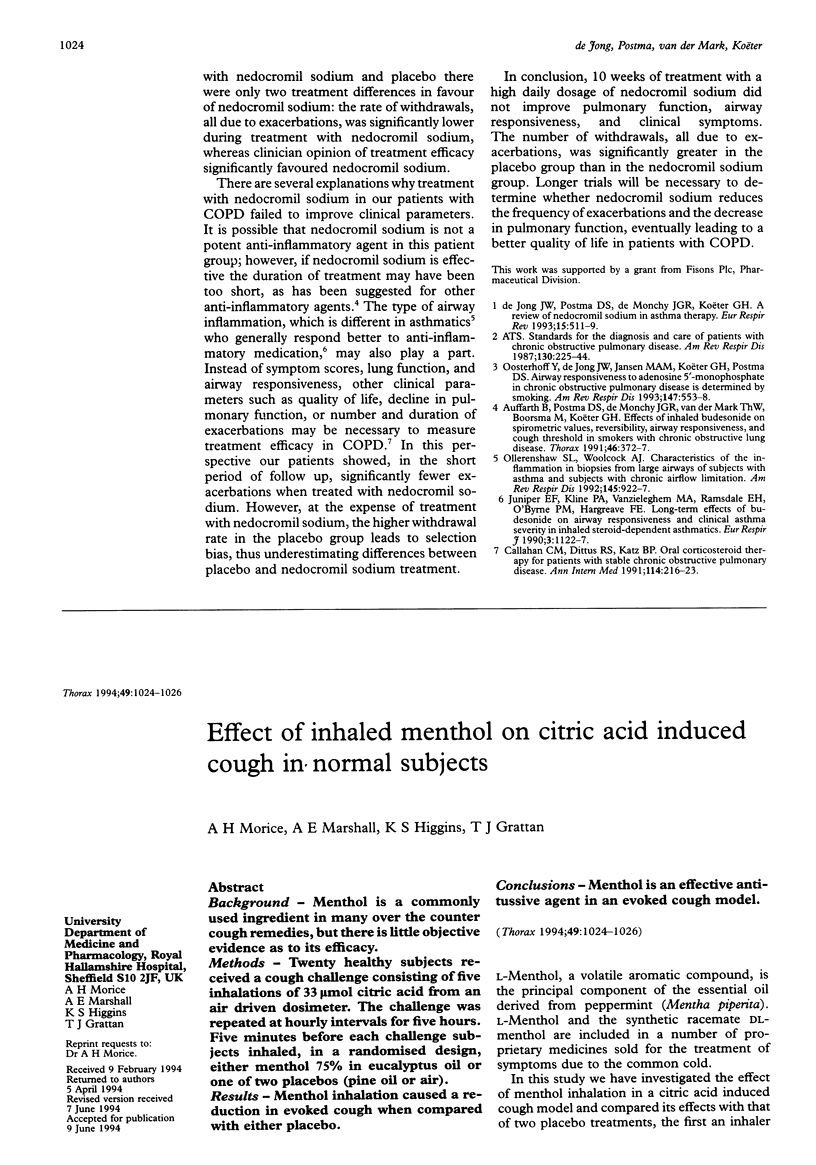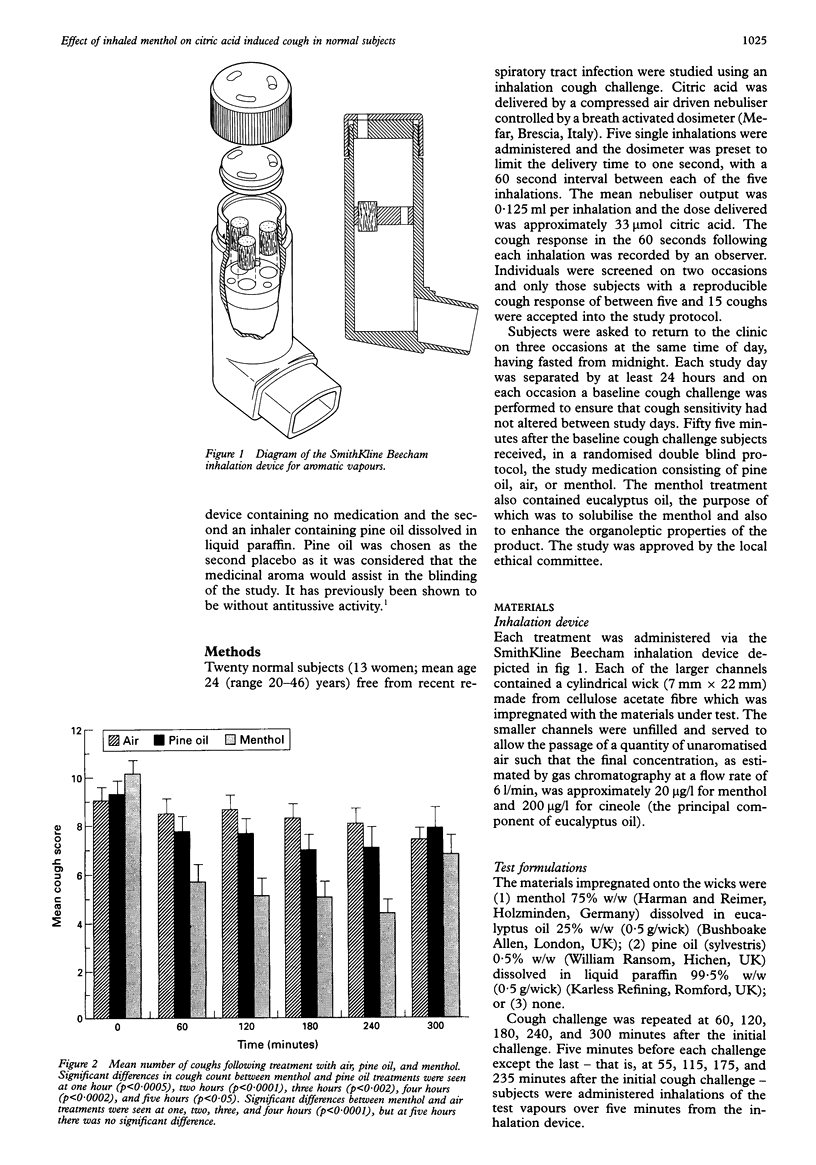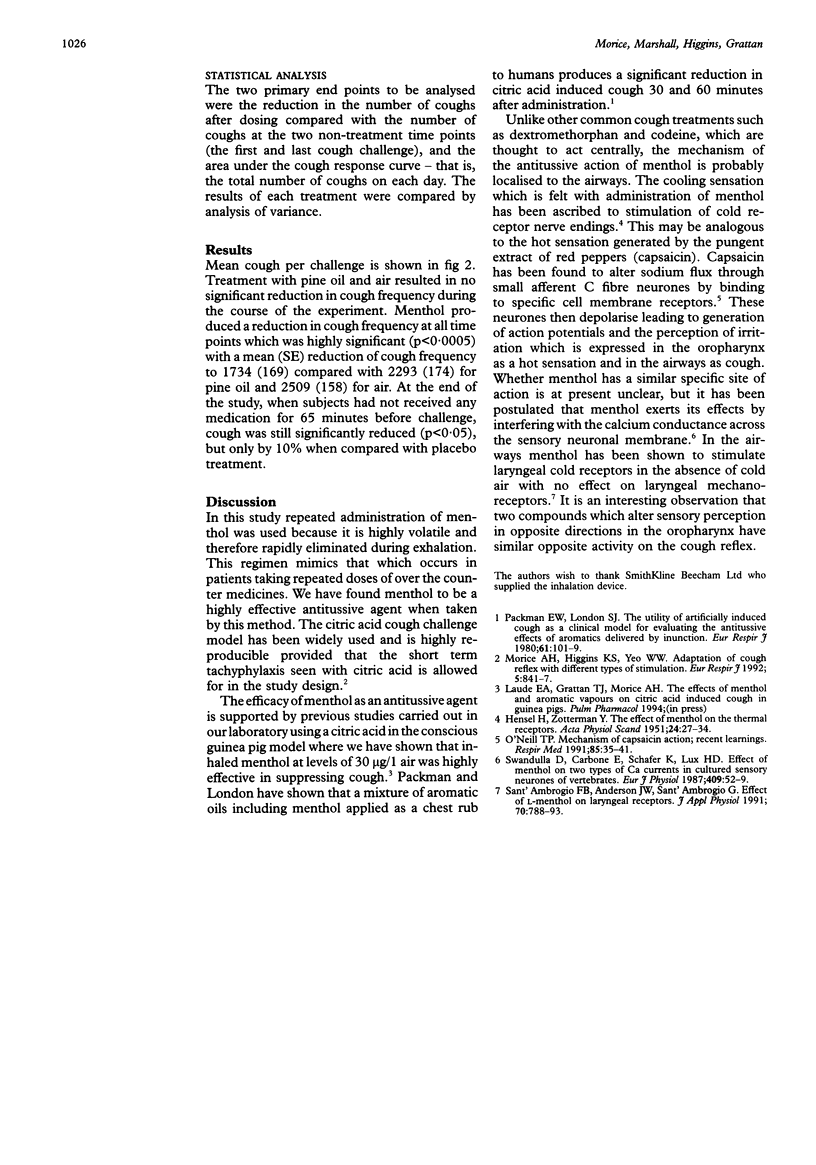Abstract
BACKGROUND--Menthol is a commonly used ingredient in many over the counter cough remedies, but there is little objective evidence as to its efficacy. METHODS--Twenty healthy subjects received a cough challenge consisting of five inhalations of 33 mumol citric acid from an air driven dosimeter. The challenge was repeated at hourly intervals for five hours. Five minutes before each challenge subjects inhaled, in a randomised design, either menthol 75% in eucalyptus oil or one of two placebos (pine oil or air). RESULTS--Menthol inhalation caused a reduction in evoked cough when compared with either placebo. CONCLUSIONS--Menthol is an effective antitussive agent in an evoked cough model.
Full text
PDF


Images in this article
Selected References
These references are in PubMed. This may not be the complete list of references from this article.
- HENSEL H., ZOTTERMAN Y. The effect of menthol on the thermoreceptors. Acta Physiol Scand. 1951 Oct 9;24(1):27–34. doi: 10.1111/j.1748-1716.1951.tb00824.x. [DOI] [PubMed] [Google Scholar]
- Morice A. H., Higgins K. S., Yeo W. W. Adaptation of cough reflex with different types of stimulation. Eur Respir J. 1992 Jul;5(7):841–847. [PubMed] [Google Scholar]
- Packman E. W., London S. J. The utility of artificially induced cough as a clinical model for evaluating the antitussive effects of aromatics delivered by inunction. Eur J Respir Dis Suppl. 1980;110:101–109. [PubMed] [Google Scholar]
- Sant'Ambrogio F. B., Anderson J. W., Sant'Ambrogio G. Effect of l-menthol on laryngeal receptors. J Appl Physiol (1985) 1991 Feb;70(2):788–793. doi: 10.1152/jappl.1991.70.2.788. [DOI] [PubMed] [Google Scholar]



